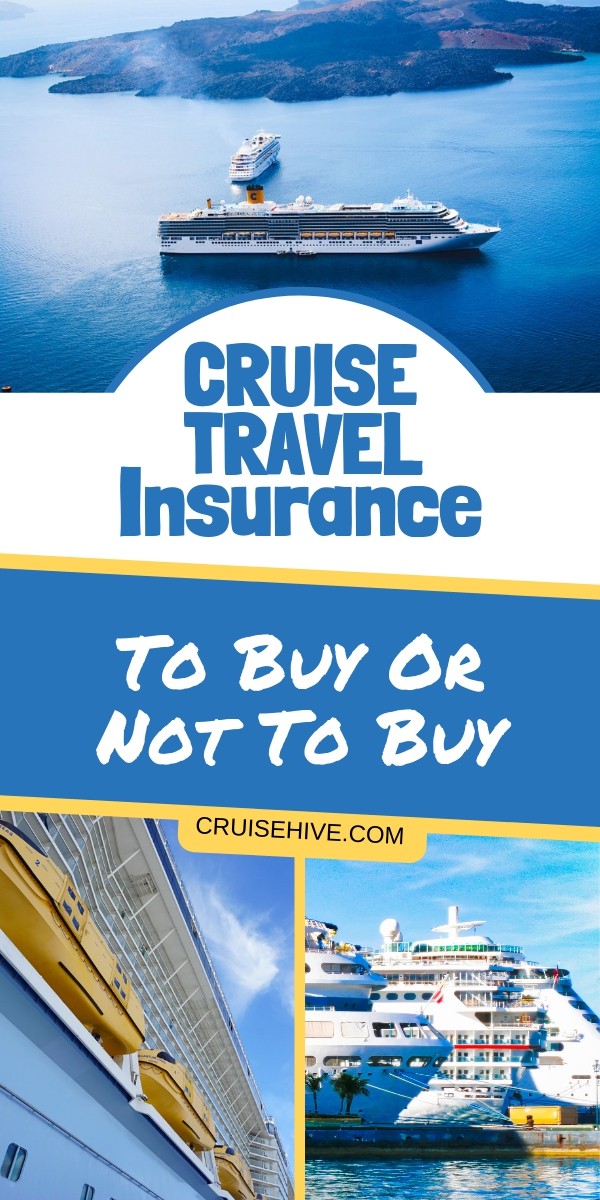A cruise in the Greek Isles was less than a week away when the doctor said, “You have vertigo, and can’t fly.” The trip was fully paid; others were depending on me; and I lived in the US. Fortunately, I had purchased cruise travel insurance even though my age was young and general health good.
Should you buy cruise insurance for your next ship vacation? Answer the following questions to see if a policy is worth the investment:
- Have you prepaid for a large portion (or all) of the cruise vacation? (This does not include ‘holding’ reservations on a credit card. This would NOT be covered by travel insurance since you haven’t actually ‘paid’ yet.)
- Is anyone in your group struggling with illness or have a condition that might worsen before the trip date? (Note that some policies have a ‘pre-existing condition’ clause with a ‘look-back’ date for the last time you saw a doctor. This can require you to be symptom-free for 60 to 180 days depending on the policy.)
- Are you taking a cruise during hurricane season?
- Are you flying to the embarkation port city?
- Do you have to make connecting flights either domestically or internationally?
- Will anyone in the group be participating in adventure travel such as climbing the rock wall onboard ship, scuba diving, zip lining, events on other craft (helicopters, fishing boats, etc.), glacier climbing, wilderness hiking, and so forth? (Medical care in a foreign country is probably NOT covered by your current health insurance policy; and medevac from a ship can cost up to $30,000.)
- Will your inability to go on the cruise affect others, such as their cabin occupancy rate?
If you answered yes to one or more of these questions, it’s probably a good idea to purchase some travel insurance.
There are two general categories of protection – primary and secondary. A primary policy will cover you beginning with the first penny you spent in a covered situation. Secondary insurance only kicks in after the primary policy has paid.
For example, your homeowner’s policy and current health insurance policy would be considered primary coverage. You could file losses with them first; but keep in mind that filing claims can sometimes trigger premium increases.
The recommendation from professional travel and tourism organizations is to purchase a primary travel insurance policy from a third party for your specific vacation.
That is, pay a little more for a primary policy that stands alone, and select it from a company not affiliated with the cruise line or travel agency. A quick search online will show you comparison prices and coverage options from a host of companies.
Generally, primary travel insurance will cost less than ten percent of the price of your cruise. If you decide to cover the unexpected, compare prices and policies based on what you specifically need in your circumstances.
I was glad to be reimbursed, and my travel companions were able to fill my slot. But the Greek Isles are still on my ‘must-see-by-cruise-ship’ list!



